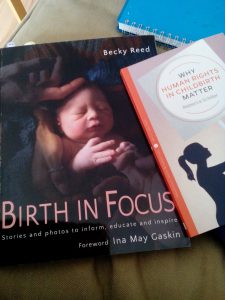From conception onwards, having twins seems to raise the bar. Through pregnancy and birth, mothers having twins are viewed as twice as delicate, with their precious double burden, placing a pressure on babies and parents that impacts on the birth as well as the early days and weeks of the babies’ lives.
Google “having twins is” and autofill offers the options of “hard” “so hard” “a blessing” and “a nightmare.” It must be difficult to focus on the blessing when society is so hell-bent on telling you you’re in for double trouble. “The way the majority of people turned my twin pregnancy into a negative really surprised me,” says mother of twins Jen. Another mum Mally adds “It makes you feel incredibly isolated. People are incredibly arrogant to think that they are much better off with ‘just the one’ (at a time).”
Having twins is increasingly common in the UK, partly because the overall birthrate is increasing, and medical advances means that more twins survive when born prematurely. In addition, women tend to wait a little longer to have babies, and over the age of 30 the likelihood of releasing multiple eggs, and therefore having twins, increases. Assisted conception through IVF and fertility drugs is another contributing factor. And more twin pregnancies means more opportunity for little old ladies to hover over your bump or your pushchair, giving advice and telling you what hard work it’s all going to be.
Kate, who has triplets, says: “Apparently it’s perfectly fine for the first question out of the gate to be ‘are they natural?’ Or ‘How were they conceived?’. What difference does it make? But it always feels like a loaded question to me.” It is loaded: with the assumption that you couldn’t have managed this all by yourself, and therefore that you cannot possibly birth, feed, or generally manage these babies all by yourself.
Most mothers who are having twins give birth to healthy babies. Some complications are more common in twin pregnancies, and modern medical practices mean monitoring for high blood pressure (a sign of pre-eclampsia), gestational diabetes and anaemia, all of which can usually be managed. For the babies, the complications that are likely to arise are a result of prematurity or low birth weight.
Giving birth to twins without medical professionals hovering around like cats on hot bricks seems unlikely. Even in the most uncomplicated twins pregnancy, it can be a challenge to avoid being channelled down the high-risk route and straight into theatre for a c-section. The effect of this is that skills and confidence in giving birth to twins without intervention are gradually eroded, and this is self-perpetuating.
I had the lady serving me in the post office say ‘twins? Poor you!’ the other week. I was so shocked I just stared at her. She then said ‘so you’re done now then’. I thought about her comments all day and got more and more upset. (Marie-Claire)
Once the babies arrive, the focus switches to all the things you surely cannot manage to do with two babies: breastfeed, sleep, get out of the house, retain your sanity. Most of the time I talk to singleton mums who tell me that all of those things are difficult; I’m not convinced that they are twice as difficult with twins, and one thing I know is that twins mums are a little better at recruiting the help they need. Life with any number of new babies can be hard work, and it’s hard to define “more” sleep-deprived when you’re as sleep-deprived as it seems possible to be.
Society needs to stop feeling sorry for mothers of twins; it’s a judgement they probably don’t need, and they get twice as much of it.
Thanks to members of Reading & District Twins Plus Club for their input. We’re talking about having twins in the next episode of Sprogcast.
Cross-posted from Huffington Post.

